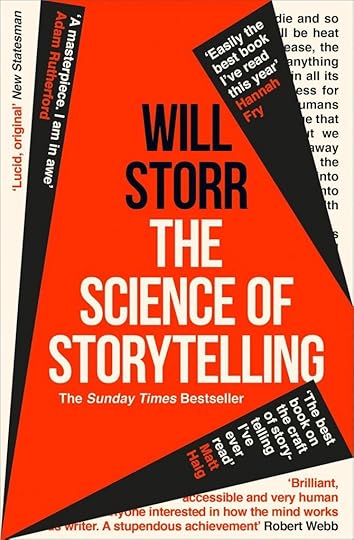Write or Wrong

I’ve just finished reading Will Storr’s The Science of Storytelling, which I would recommend to both writers and those interested in the mind.
Storr uses neuroscience to suggest that the structure of stories is hardwired into our brains and one of the things that gave us an evolutionary advantage. Being able to not just impart information, but ascribe meaning, meant we were able to function more efficiently in tribes.
Those of us who have read Joseph Campbell’s Hero With a Thousand Faces and have some familiarity with mind science will recognise a lot of what Storr says. However, the criticism of Campbell for being Euro/anglo centric also applies a bit to Storr. He does differentiate between the western story – based on character and plot arc – and the eastern story – based on the harmony of the theme and form. What he doesn’t do is question what impact (if any) neurodivergence has on reading and writing stories, or explore story in other cultures.
If we accept nurture as well as nature has a role in developing how our minds work in our formative years, then I believe the society we live in has a role in how we relate to stories. As story telling is so fundamental to social interaction, there must be a feedback loop between the structure of story common to a society and the type of story people living in it accept as relevant. The basic structure of our brain, and the interplay of different parts of it in making up our “mind” will play a large part in this, but not the only part and I would have liked some more investigation into different influences.
That does not take away from its success as a fascinating read which writers would do well to heed, if not follow slavishly. It is often fiction which subverts rules that I love the most.



